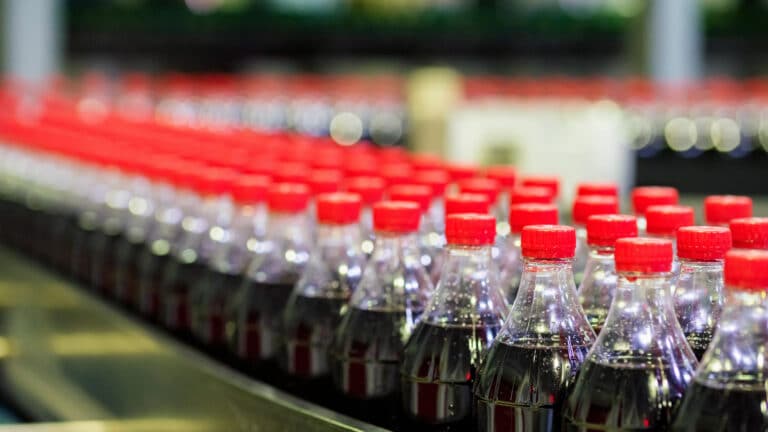Artel is now the biggest company in the entire region with 11 manufacturing sites and logistical centers
The home appliances industry in Uzbekistan is one of the fast-growing segments of the national economy. By 2022, the industry may demonstrate a fivefold growth if compared to 2017 figures, experts say. According to ERGO Analytics, over the period from 2017 to 2021 the volume of production of home appliances in the country rose 3.7 times and reached $1.2 billion. In 2021 this rate is expected to reach $1.4 billion and $1.8 billion in 2022.
From simple production to rating by Fitch
Artel is one of the main drivers of the home appliances industry in Uzbekistan. In 2011, it was a small production site with only 300 employees. Back then, the company produced only gas stoves. Now, it is the biggest company in Central Asia with eleven manufacturing sites and logistical centers.
The company produces more than 20 types of home appliances including refrigerators, TV sets, vacuums, microwaves, water heaters, and washing machines. Artel produces hundreds of thousands or even millions of items per year.
Artel’s manufacturing capabilities allow the company to produce about 1500 types of products in total under its brand, which is Artel, and under prominent international labels including Samsung, Shivaki, Toshiba, Avalon, Carrier, and Viessmann.
This year, for the first time in its history, Artel has been ranked by the Fitch rating agency as “B”, outlook stable. The agency affirmed the leading position of the company in Uzbekistan thanks to an expected flow of a large amount of revenue and mutually beneficial cooperation with big home appliances producers. The rating, which is an independent benchmark of credit reliability, is based on a thorough analysis of the company’s business and financial situation.
Consumer Makes a Choice
To meet the demands of the 35-million population of the country, Artel has built an extensive dealer network. Also, the company worked a lot to beef up its exports over the past four years. In 2017, the company exported goods worth $34.8 million. In 2020 amid the pandemic, the company managed to increase exports to $77 million, which surpasses the result of 2019 by 30%, which earned Artel $60 million from export. Over 10 months in 2021, the volume of exports reached $88 million.
The main foreign markets of Artel are neighboring countries of Central Asia and the Commonwealth of Independent States. So far, Artel exports goods in 13 different countries.
A good balance between price and quality is a key factor for those consumers who choose Artel. The company’s market share in Central Asia is quite impressive.
In Kazakhstan, Artel’s share in the washing machine market has risen to 80.2%, in Kyrgyzstan to 30%, and in Tajikistan to 42%. In the kitchen stove market, Artel’s share in Kazakhstan has reached 46.8%. Moreover, Artel’s products are marked with the «Made in Uzbekistan» label and are quite popular in Azerbaijan, including washing machines (31.7%), TV sets (16%) and air conditioners (22%).
Gender Balance
Manufacturing sites run by Artel in Uzbekistan are located in the city of Tashkent, in the Tashkent region, Nukus (Republic of Karakalpakstan), Khoresm and Zaamin (Jizzakh region). These geographic spots were chosen not by chance. The company chose the regions with the highest unemployment rate. Currently, there are 9,000 employees in Artel, including 2,000 women.
To cut production costs, Artel has decided to produce some components for the appliances in-house. For example, the factory in Zaamin produces about 4.5 million pieces of cords per year; the workshop in Tashkent produces 3,000 tons of plastic products; another factory produces 6.8 million electronics boards a year.
These auxiliary manufacturing sites supply their products not only to Artel but abroad as well. For instance, the company’s glass production workshop produces 78,000 square meters of glass (about 15 railway cars) per year. According to Natalya Karachan, head of the factory, their products sparked interest from some Turkish companies.
«This means that they like how we make our products. We use advanced technology and modern equipment from Switzerland. As a result, we can work with a high rate of efficacy and quality,» she said.
As the executive of the glass production site noted female workers often do the most responsible jobs such as controlling production lines equipped with sophisticated and expensive machines.
«Glass is an extremely heavy material. One square meter of glass four millimeters thick weights about 10 kilograms. When we just launched this production site I thought we wouldn’t hire girls because the material is so heavy. I was wrong because I noticed that female workers do their jobs more accurately and with no rash,» said Karachan.
The refrigerator plant in Tashkent is known as a place with the highest density of female workers. More than 400 (46%) out of 860 employees are women. They operate machines and production lines, control product quality and implement IT technologies.
According to Makhfuza Akobirova, chief specialist on labor protection and technical safety at the Artel refrigerator factory, the company is always eager to support the activity of female workers.
«The company does everything needed to meet labour legislation. Moreover, female workers can rely on some additional supporting measures. For example, women who raise two children under 14 can enjoy a shorter working day. Women with disabled children have longer vacations. Female workers can do a medical checkup twice a year free of charge. Also, they can rely on some financial support each quarter and attend refresher courses,» said Makhfuza Akobirova.
Women Drive Progress
According to Ileszhon Pulatov, deputy head of the refrigerator production department in Artel, this approach is paying off, as the vast amount of key innovations at the factory are driven by women.
«We have a contest for the best ideas on production optimization and invite all workers to take part in it. Thirteen of the best ideas out of sixteen were developed by women. Today we even have a special pinboard for women’s ideas where we can choose the best of the best idea,» he said.
The Cyber Development Center within Artel is responsible for the research and implementation of innovations in the production cycle. The center develops software to optimize production processes and digitalize the company.
Recently, experts from Cyberspace have done a robotic tractor, which can haul a load up to 200 kilograms. This robot has already been tested and Artel started to receive its first orders from customers.
«We called this robot Neo; we’ve tested it at the refrigerator division where Neo transported some parts on a given route with no intervene from a human,» said Laura Akhmedzyanova, an SAP consultant in Artel.
The Cyberspace Development Сenter is going to go further the development of innovative solutions that are applicable in the production of Artel or any other company.
Technologies, knowledge and human resources are the main priorities for Artel in its strategy of business development. This approach has allowed the company to transform itself from a small business manufacturing kitchen stoves to the biggest tech giant in Central Asia. Moreover, Artel is going to expand its business in the Middle East and North Africa very soon.












